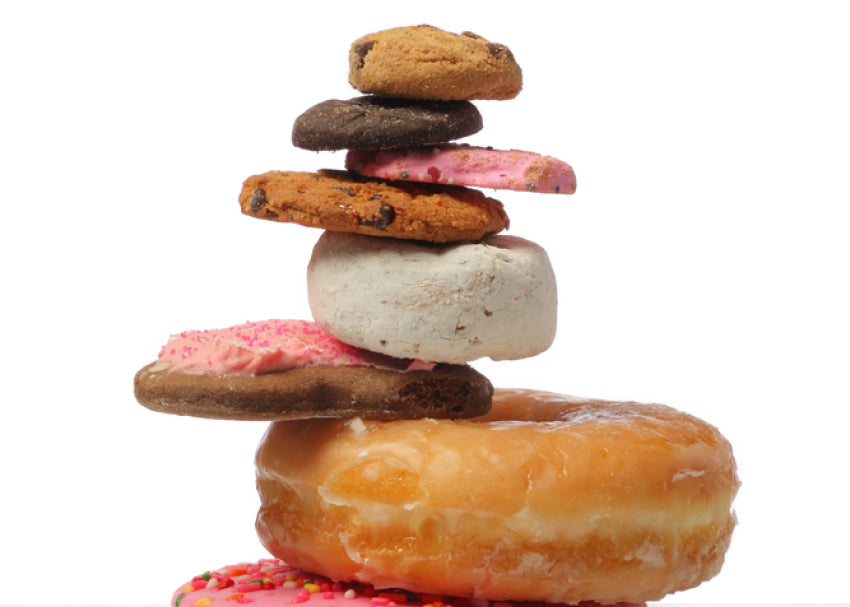Aging brings shifts in hormone production. But did you know that eating too much refined sugar (no matter your age) can create hormone problems as well?
Insulin is an important hormone produced by the pancreas, and its job is to regulate your blood sugar. In a healthy "insulin sensitive" body, insulin signals your cells to absorb glucose from your bloodstream. The amount of insulin released by the pancreas creates just the right balance for glucose to be extracted from the food you eat, sent into your bloodstream, and pushed into your muscle, liver, and fat cells. You can visualize it like this: Insulin calls your cells on the phone, and when the cells answer the call, glucose is absorbed.
What is Glucose?
Glucose is your body's "basic fuel," your key source of energy. It needs to remain at stable (moderate) levels for other crucial functions, like growth, movement, immune response, and cell repair to be carried out. In an "insulin resistant" body, however, too much glucose overloads your system, making your cells become desensitized, or numb. Insulin calls your cells, but the phone is just ringing off the hook! When the cells are slow to answer, the pancreas makes more (and more) insulin.
Prolonged levels of high insulin cause your pancreas to become worn out trying to meet the perceived demand. This disrupts your metabolism, increases inflammation, and eventually, your cells just stop responding. Insulin is a fat-storage hormone, so when there are increased circulating levels of insulin in your body, one result is weight gain, especially around the waist. Other common symptoms include fatigue, thirst, or the afternoon "slump."
Insulin Resistance or “Pre-Diabetes”
Some experts estimate that 25 to 50% of people in the United States are likely insulin resistant. Insulin resistance syndrome is sometimes called "pre-diabetes," or "Syndrome X," which leads to Metabolic Syndrome. The health risks of insulin resistance include diabetes, obesity, high cholesterol, heart disease, and stroke. Some studies have also shown higher risks of Alzheimer's and some cancers.
Our bodies are designed to crave sugar, to some degree. All of the fats, proteins, and carbs in the food we eat are broken down by the digestive process into proteins, micronutrients, and glucose. We need sugar, but we typically eat far more than our bodies need, and much more than we can use. Anyone can be insulin resistant because of diet. Refined carbs and processed foods cause a fast breakdown of sugars that force our bodies to produce more insulin, trying to metabolize it. Extra glucose gets converted into fat. Fat cells produce extra estrogen - and estrogen dominance. You get the picture!
How To Improve Insulin Resistance
The good news is that glucose in your body can be restored to healthy levels through better nutrition, lifestyle changes, and exercise. You have the power to heal a condition of insulin resistance!
Here are 5 ways to do it:
- Eat primarily whole foods (avoiding pre-packaged processed foods)
- Minimize (not eliminate) grains and carbs
- Eat essential fatty acids, or "healthy fats," such as fish oils, avocado, and flaxseed
- Exercise to help regulate metabolic function
- Take a pharmaceutical-grade nutritional supplement
